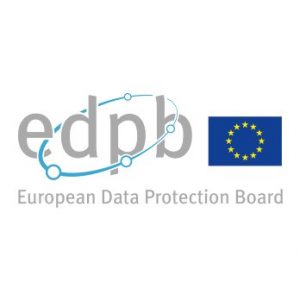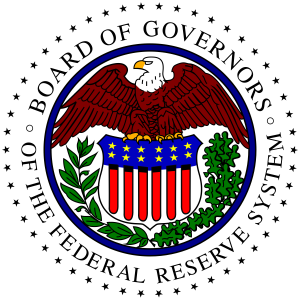Search
Why Your Organization Should Be Thinking About Quantum Computing and the Future of Encryption
Posted
In light of the increasing organizational use of and reliance on software and the concerns raised regarding the malicious use of the same, the UK Government has published a response to its call for views on software resilience and security for businesses and organizations. (See here for details of the call for views.) The UK Government has unveiled an ambitious plan to enhance software security practices in the UK by proposing baseline security expectations for software vendors in an effort to seek more transparency and consistency for customers.
 The United Kingdom hosted an Artificial Intelligence (AI) Safety Summit on November 1 – 2 at Bletchley Park with the purpose of bringing together those leading the AI charge, including international governments, AI companies, civil society groups and research experts to consider the risks of AI and to discuss AI risk mitigation through internationally coordinated action.
The United Kingdom hosted an Artificial Intelligence (AI) Safety Summit on November 1 – 2 at Bletchley Park with the purpose of bringing together those leading the AI charge, including international governments, AI companies, civil society groups and research experts to consider the risks of AI and to discuss AI risk mitigation through internationally coordinated action.
In UK Financial Regulators to Oversee Critical Third Parties, our colleagues Lee Rubin and Mark Booth discuss the proposed new regime that will grant UK federal regulators a range of powers over third parties that provide critical services to the financial sector.
 The European Data Protection Board (EDPB), the body which represents EU data protection authorities, has adopted guidelines (Guidelines) confirming when transfers need to be “safeguarded” in accordance with the GDPR (and importantly when they do not). In particular:
The European Data Protection Board (EDPB), the body which represents EU data protection authorities, has adopted guidelines (Guidelines) confirming when transfers need to be “safeguarded” in accordance with the GDPR (and importantly when they do not). In particular:
 This week the European Data Protection Board (EDPB), a body that represents European data protection authorities, set up a new cookie banner taskforce. The new taskforce will coordinate the response to over 400 complaints concerning cookie banners filed by a nonprofit organization founded by Max Schrems, None of Your Business (NOYB).
This week the European Data Protection Board (EDPB), a body that represents European data protection authorities, set up a new cookie banner taskforce. The new taskforce will coordinate the response to over 400 complaints concerning cookie banners filed by a nonprofit organization founded by Max Schrems, None of Your Business (NOYB).
![]() ‘Contact tracing’ is a process used by public health officials to identify individuals who may have come into close proximity with a contagious virus, such as COVID-19. Traditionally, infected persons are asked to identify interactions with people whilst infected or in the days leading up to infection being diagnosed. Health practitioners can then contact those at risk to warn them of potential exposure, what steps to take and how to avoid infecting others.
‘Contact tracing’ is a process used by public health officials to identify individuals who may have come into close proximity with a contagious virus, such as COVID-19. Traditionally, infected persons are asked to identify interactions with people whilst infected or in the days leading up to infection being diagnosed. Health practitioners can then contact those at risk to warn them of potential exposure, what steps to take and how to avoid infecting others.
A recent data breach and subsequent bankruptcy combine to form a cautionary tale on the importance of cyber insurance. On our Insurance & Recovery blog Policyholder Pulse, in “From Data Breach to Bankruptcy – A Cautionary Tale for Those Without Cyber Insurance,” colleague Curtis A. Simpson examines the data breach suffered by American Medical Collection Agency and how that forced its parent company, Retrieval-Master Creditors Bureau Inc., into Chapter 11.
 The Board of Governors of the Federal Reserve System has recently indicated it may move forward with enhanced cybersecurity standards that had previously been floated by the Board, the Office of the Comptroller of the Currency (OCC) and the Federal Deposit Insurance Corporation (FDIC) back in 2016. Specifically, in October 2016, the Board, the three entities issued a joint advance notice of proposed rulemaking (ANPR) on enhanced cybersecurity standards before deprioritizing it in 2017. While the OCC and the FDIC withdrew their ANPRs earlier this Spring, the Board may revive the issue this coming Fall.
The Board of Governors of the Federal Reserve System has recently indicated it may move forward with enhanced cybersecurity standards that had previously been floated by the Board, the Office of the Comptroller of the Currency (OCC) and the Federal Deposit Insurance Corporation (FDIC) back in 2016. Specifically, in October 2016, the Board, the three entities issued a joint advance notice of proposed rulemaking (ANPR) on enhanced cybersecurity standards before deprioritizing it in 2017. While the OCC and the FDIC withdrew their ANPRs earlier this Spring, the Board may revive the issue this coming Fall.
The recent data breach of India-based technology services provider Wipro serves as yet another reminder that technology or outsourcing service providers are high-priority targets for cyberattacks. In “Managing Risk in Light of the Wipro Data Breach,” colleagues Andrew Caplan, Mia Rendar and